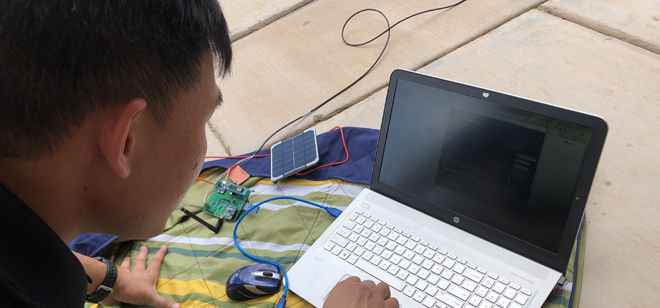A Carbon Footprint Reduction in Agricultural Activities

Farm electrification is a viable solution toward removing the carbon footprint from agricultural activities, contributing to curbing climate change concerns. The availability of renewable energy resources is a crucial factor to understand as well as understanding the energy requirement of farming activities. In this project, first, we did thorough research on the available technology for electrifying farming activities. We developed a road map that 1) presents greenhouse gas emitting activities in the food supply chain, 2) discusses the carbon footprint of different activities in the food supply chain, and 3) presents a road-map to decarbonize greenhouse gas emitting activities in farms. Our analysis led to an estimation that electrification of farms in an appropriate process with renewable energy resources can decrease the carbon footprint of farming by 44–70% depending on the type of the farm. Once the technical analysis is done, Smart Grid lab students developed a solution to monitor solar availability in the very location where farming activities will occur which is tested on the SDSU Imperial Valley campus. The solar availability data is successfully transmitted from a nearby farm. Utilizing the gathered data over a year will enable the development of predictor models suitable for future solutions on coordinating farming activities and solar energy availability. The project aims to continue working on the subject by working with workforce development groups aiming for California utilities and beyond as well as the farmer's community.

